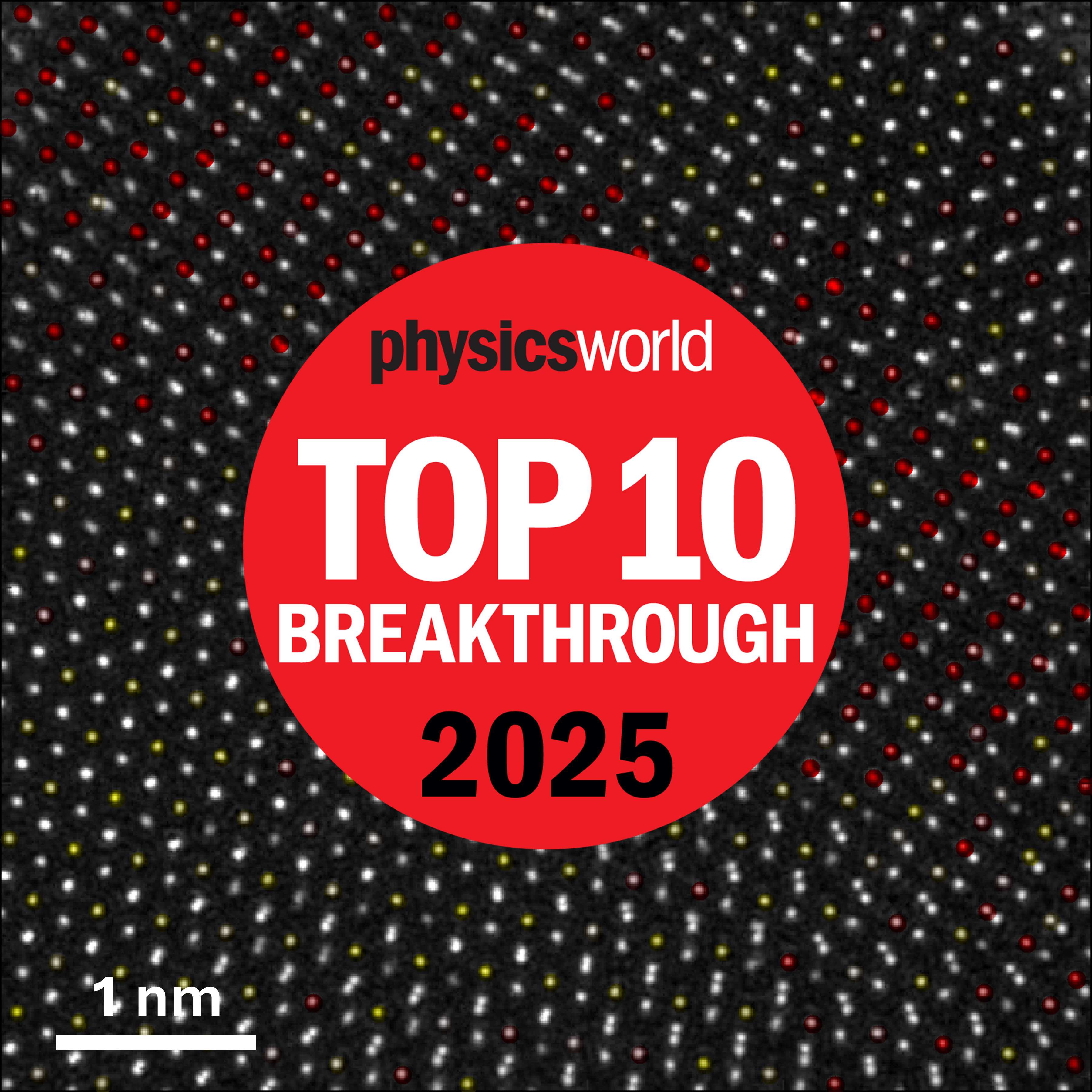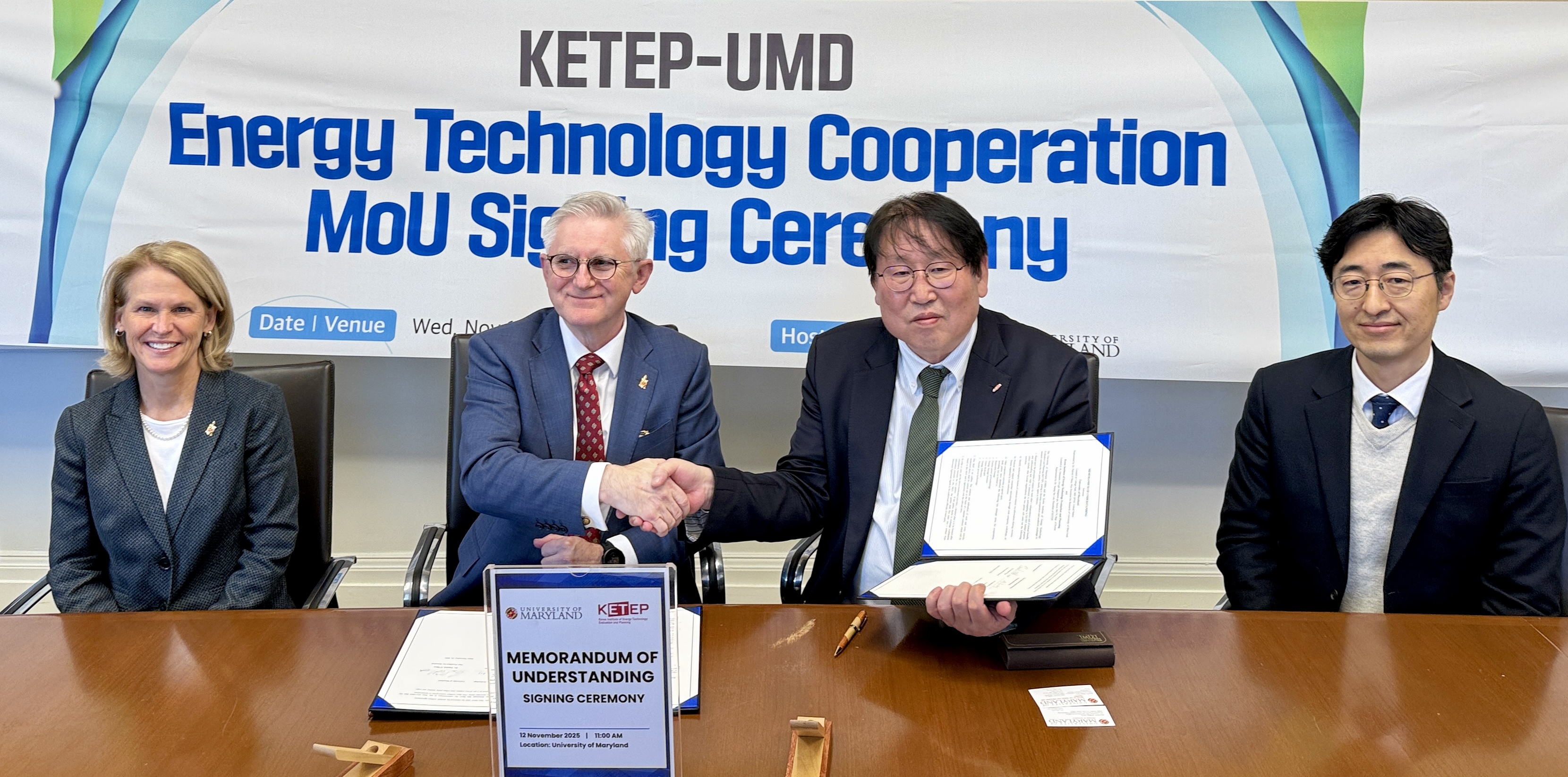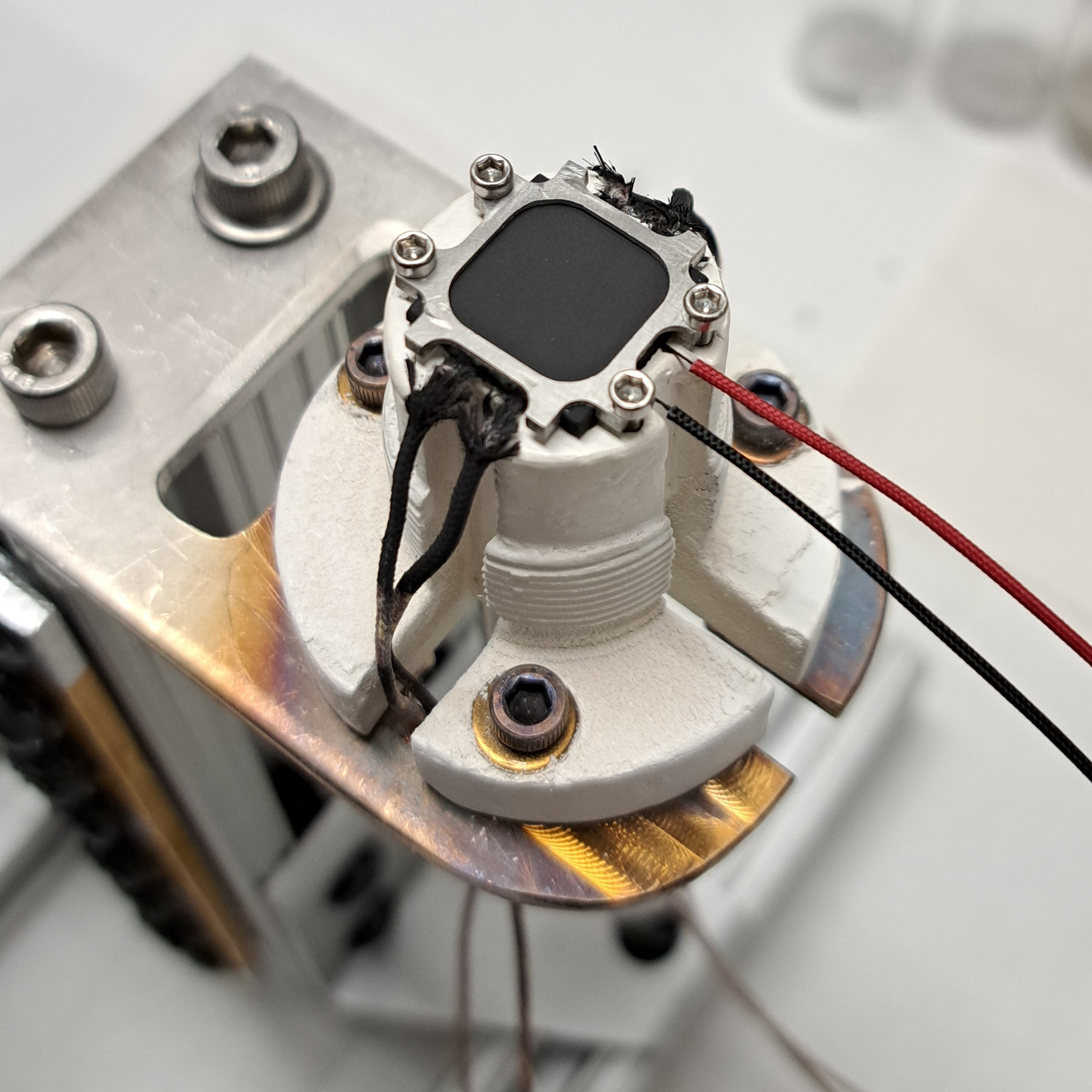News Story
$2.8M DOE Grant Funds Continued Development of Cooling Technology
Department of Materials Science and Engineering (MSE) professor Ichiro Takeuchi and MSE adjunct professor Jun Cui have received a three-year, $2.83 million Department of Energy (DOE) Advanced Research Projects Agency—Energy (ARPA-E) "plus-up" award to develop a residential-grade air conditioning system that uses no liquid refrigerants and could cut both electric bills and carbon dioxide emissions.The unit uses an all solid-state cooling technology based on latent heat generated by the martensitic transition (change in crystal structure) of shape memory alloys. Also referred to as elastocaloric cooling, the technology can potentially replace the vapor-compression based air conditioners and refrigerators, which utilize hydroflourocarbons and hydro flourochlorocarbons (such as Freon) that are harmful to the environment and have the potential to increase global warming.
In 2010, Takeuchi and his colleagues received an ARPA-E seed grant to explore the feasibility of thermoelastic cooling systems. Prior to the project, there had only been limited theoretical predictions about the phenomenon of thermoelastic cooling. In 2011, the team developed a 35W water-cooling system, and in 2012 it demonstrated a 1kW thermoelastic air conditioner prototype at the ARPA-E Summit.
The seed project also showed that thermoelastic cooling is one of the most efficient among alternative cooling technologies, with an achievable temperature drop as large as 20 degrees Celsius1 (68 degrees Fahrenheit).
Thermoelastic cooling won the University of Maryland Office of Technology Commercialization's Physical Sciences Invention of the Year Award in 2011, and has since been licensed by Maryland Energy and Sensor Technologies, LLC, a startup based in the Maryland Technology Enterprise Institute's Technology Advancement Program on campus.
Under the newly funded project, Takeuchi's team will partner with the Pacific Northwest National Laboratory and the United Technology Research Center to develop a 1-ton air conditioning system—a capacity typical of residential window units—based on thermoelastic cooling compression mechanisms. Department of Mechanical Engineering (ME) professor and Center for Environmental Energy Engineering (CEEE) director Reinhard Radermacher and CEEE associate director Yunho Hwang will conduct extensive modeling and simulation of the heat exchanger and cooling regenerator, the core of the air conditioner. Takeuchi and Cui's collaborators also include ME faculty research assistant Jan Muehlbauer, MSE research associate Yiming Wu, and MSE professor Manfred Wuttig.
For More Information:
1Jun Cui, Yiming Wu, Jan Muehlbauer, Yunho Hwang, Reinhard Radermacher, Sean Fackler, Manfred Wuttig, and Ichiro Takeuchi, “Demonstration of high efficiency elastocaloric cooling with large DT using NiTi wires,” Applied Physics Letters 101, 073904 (2012). (PDF)
Published December 4, 2012










